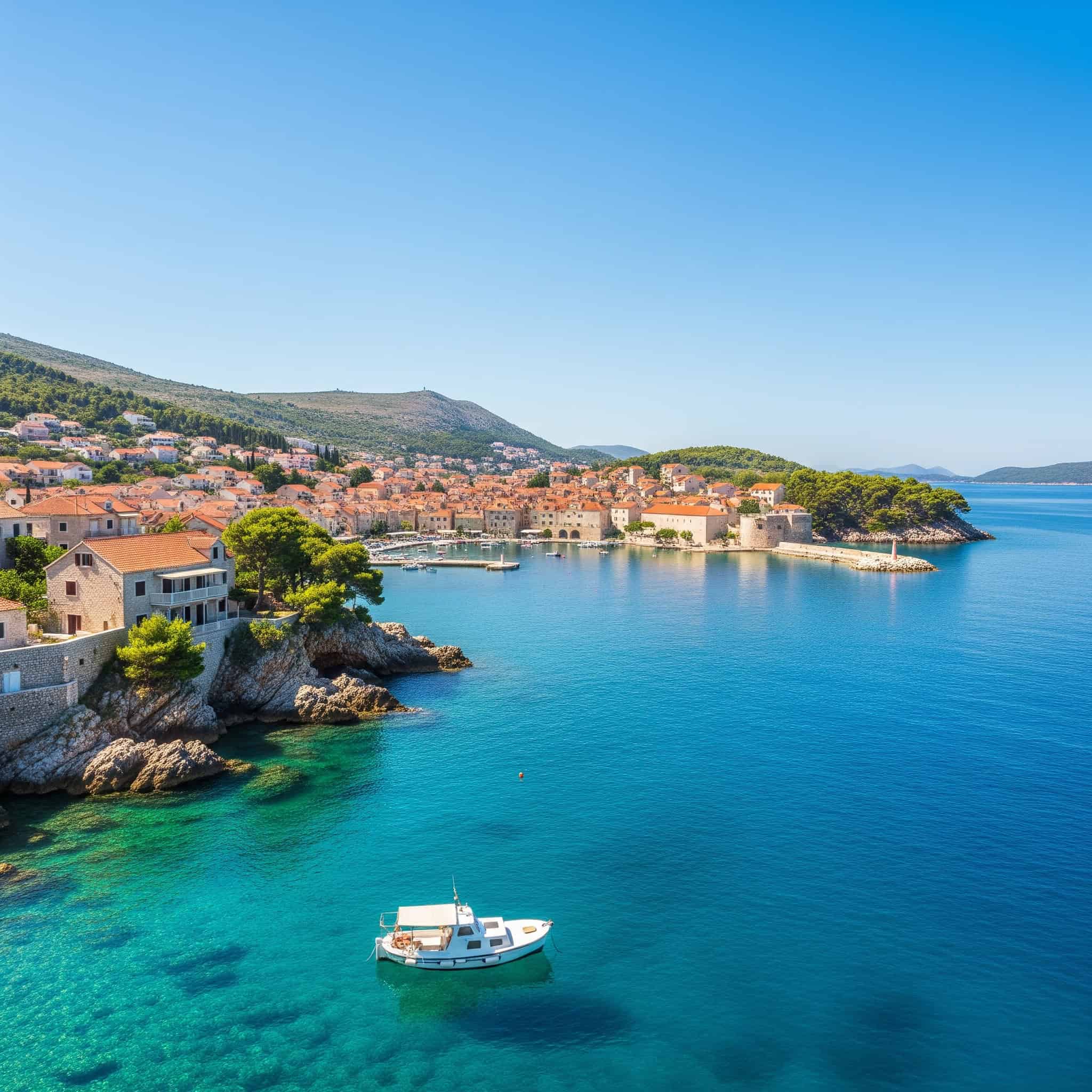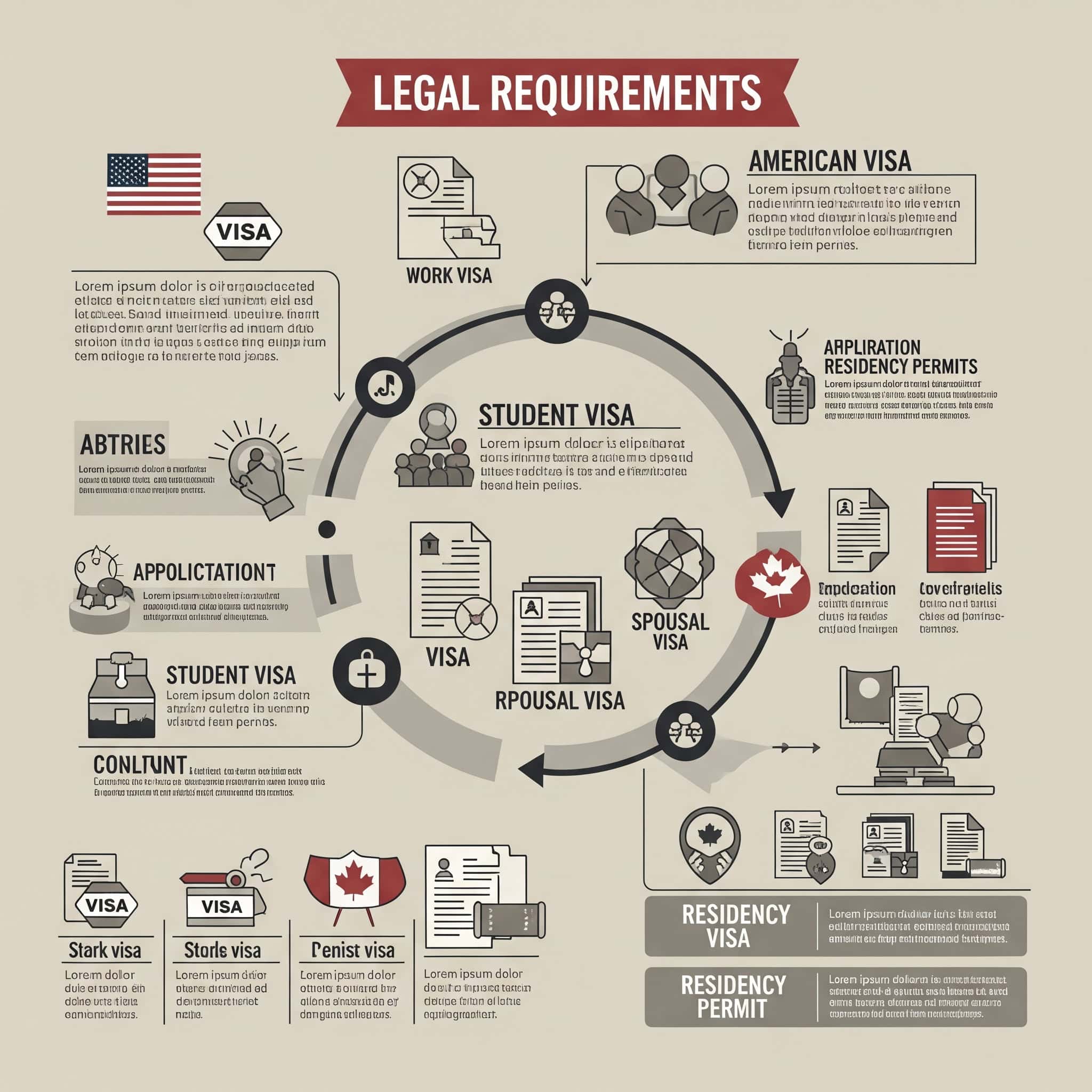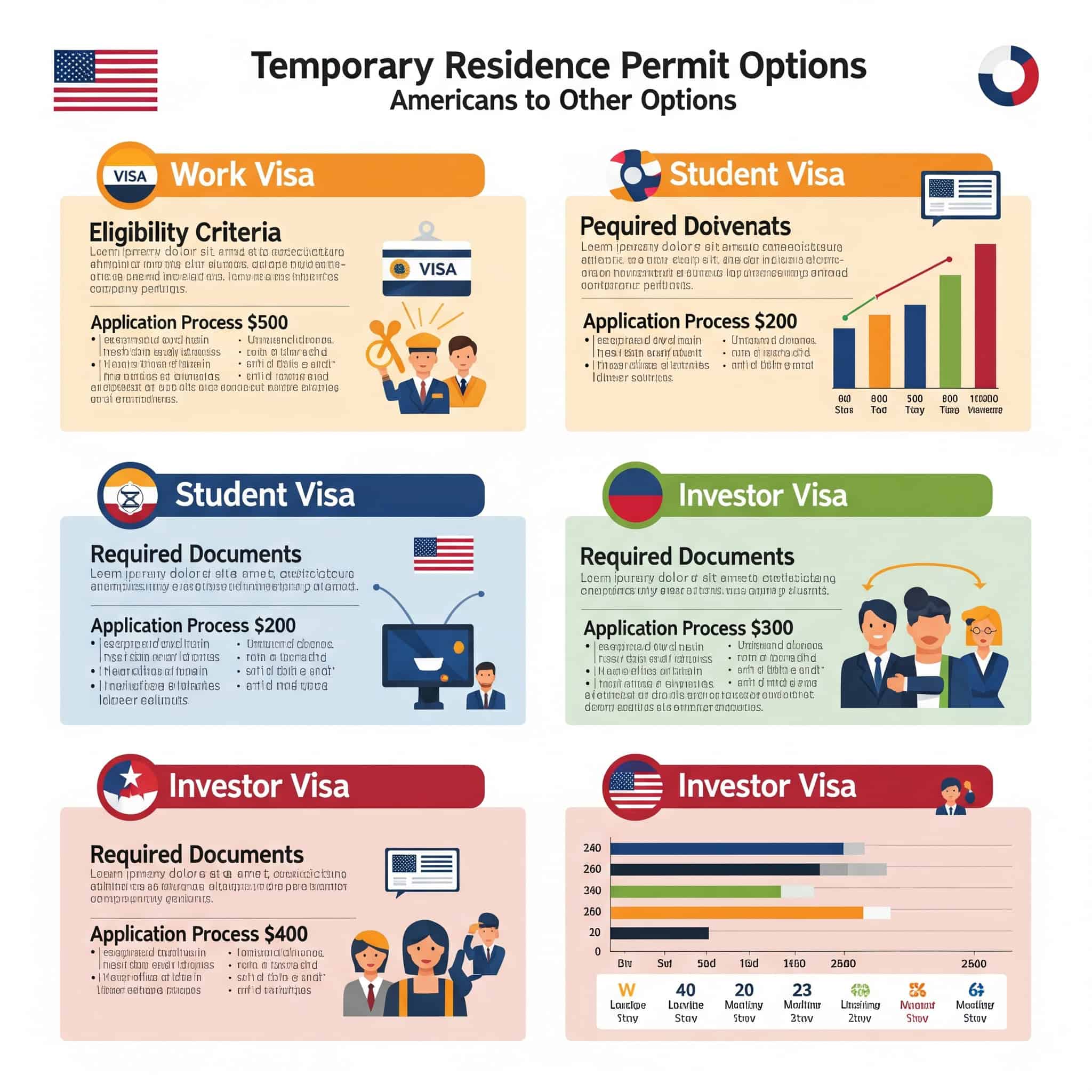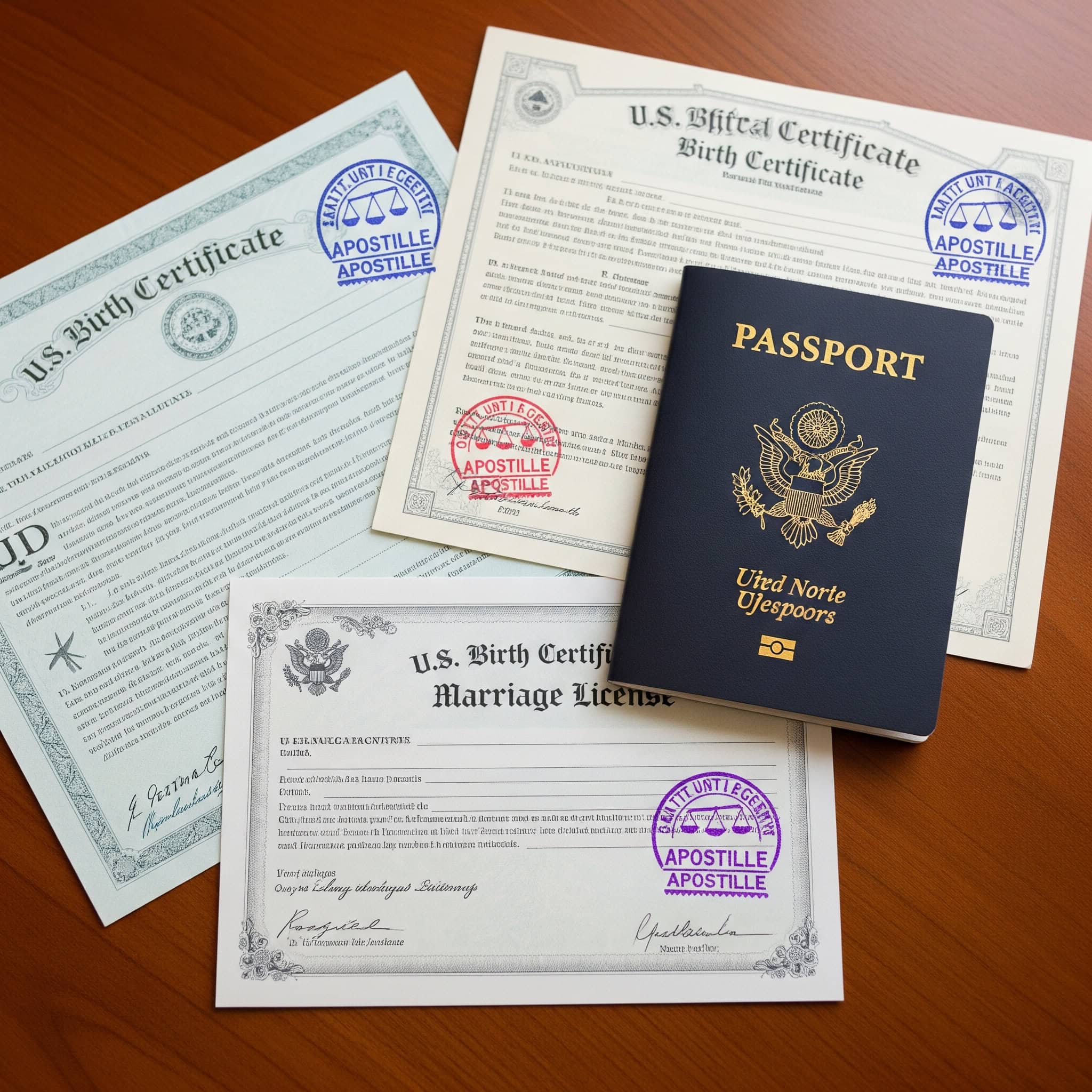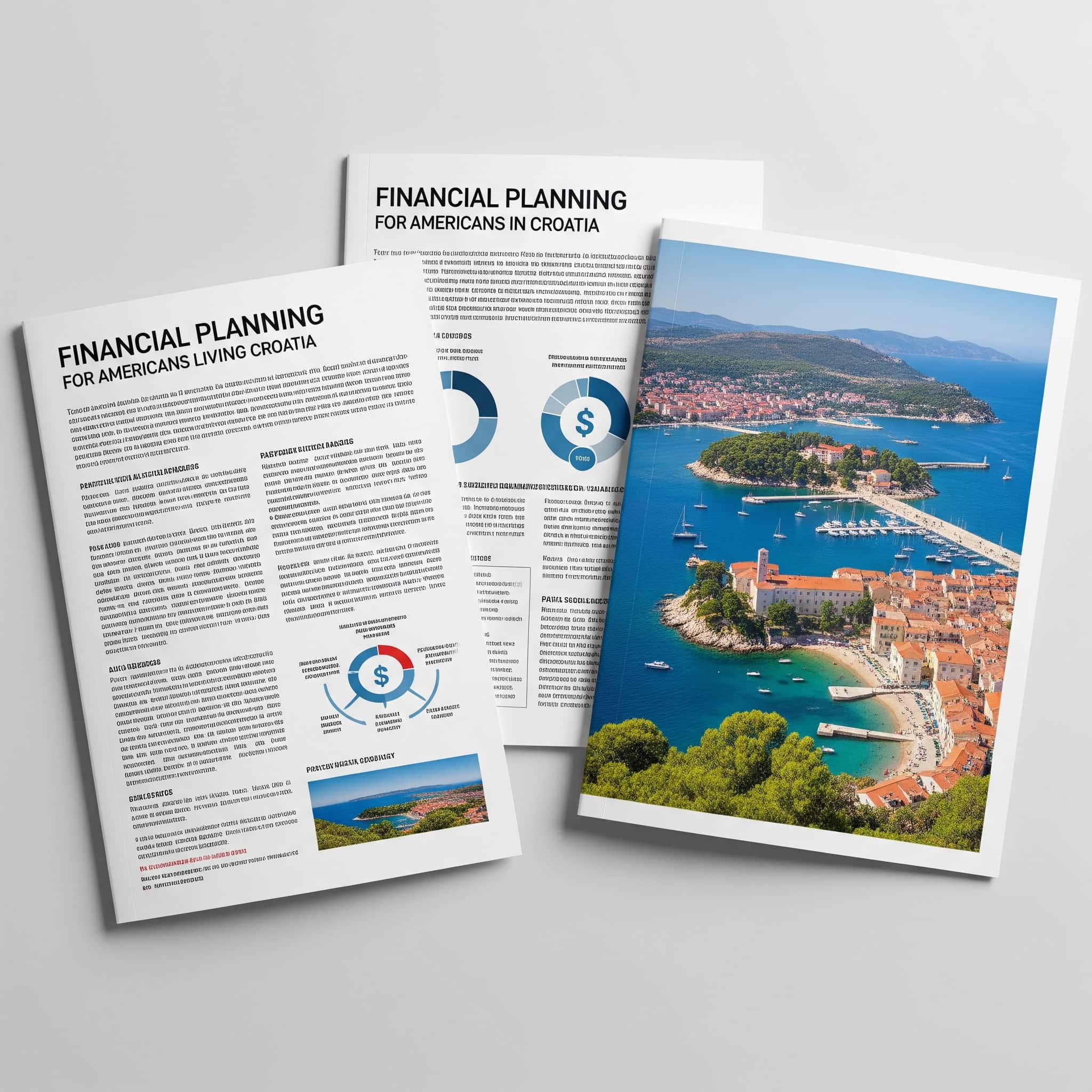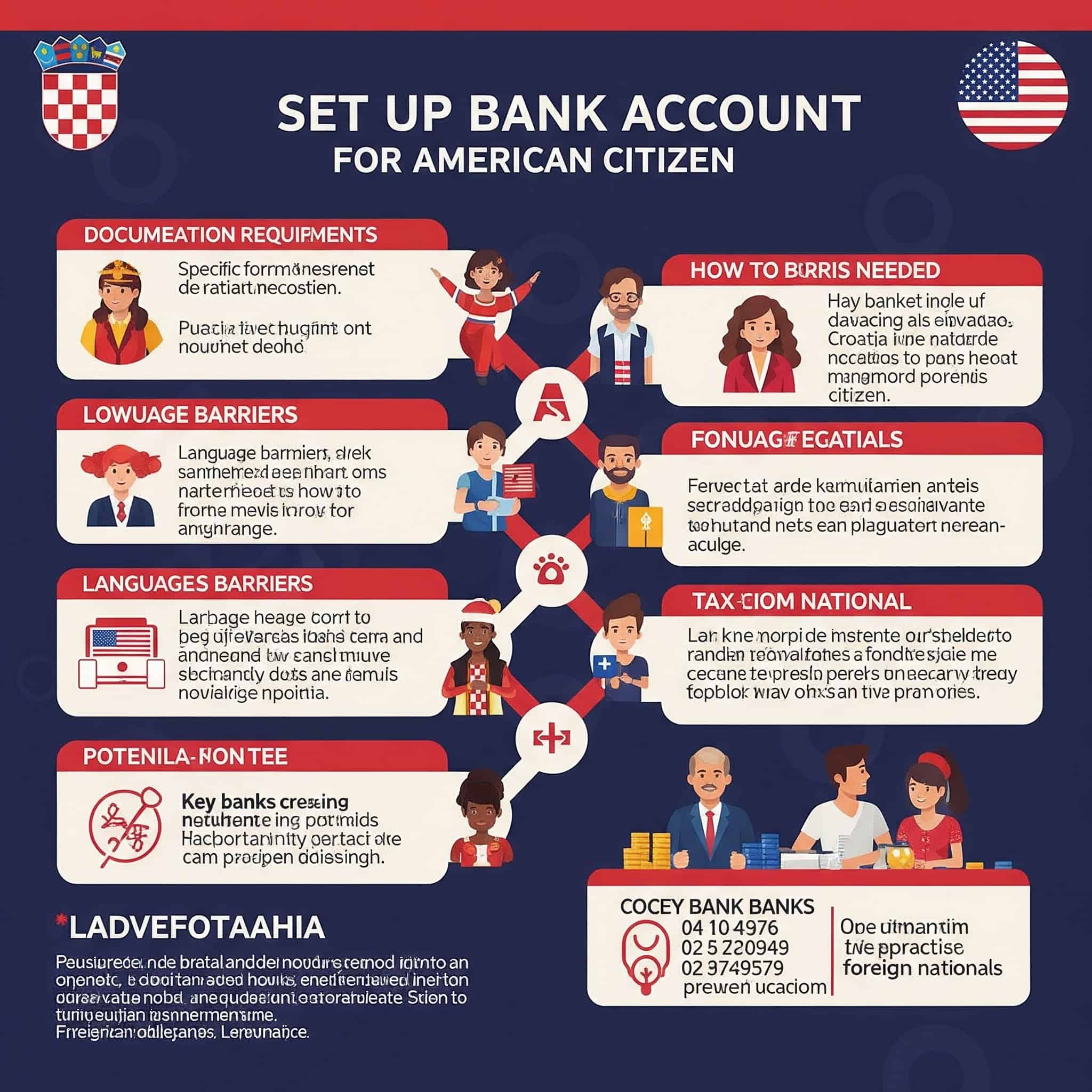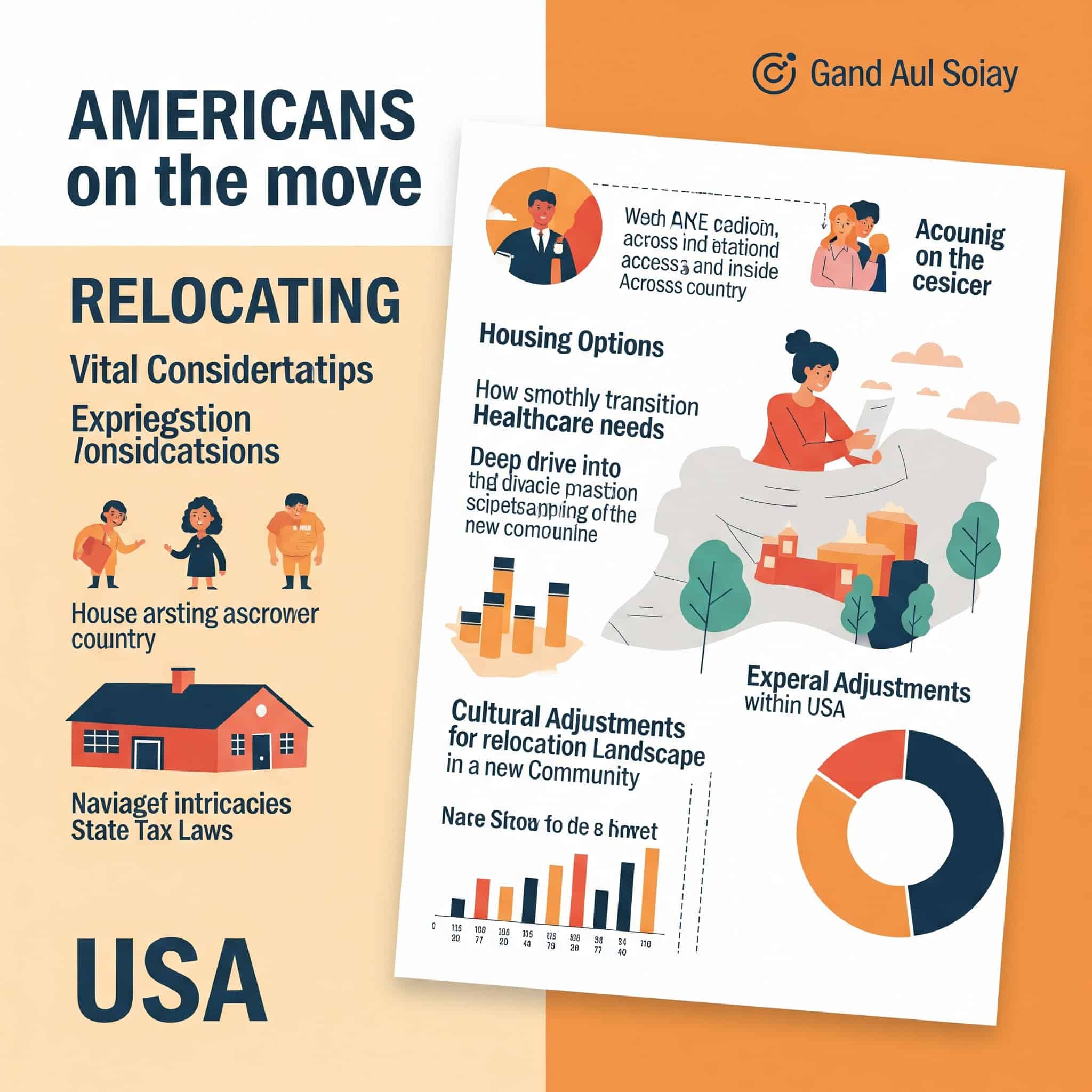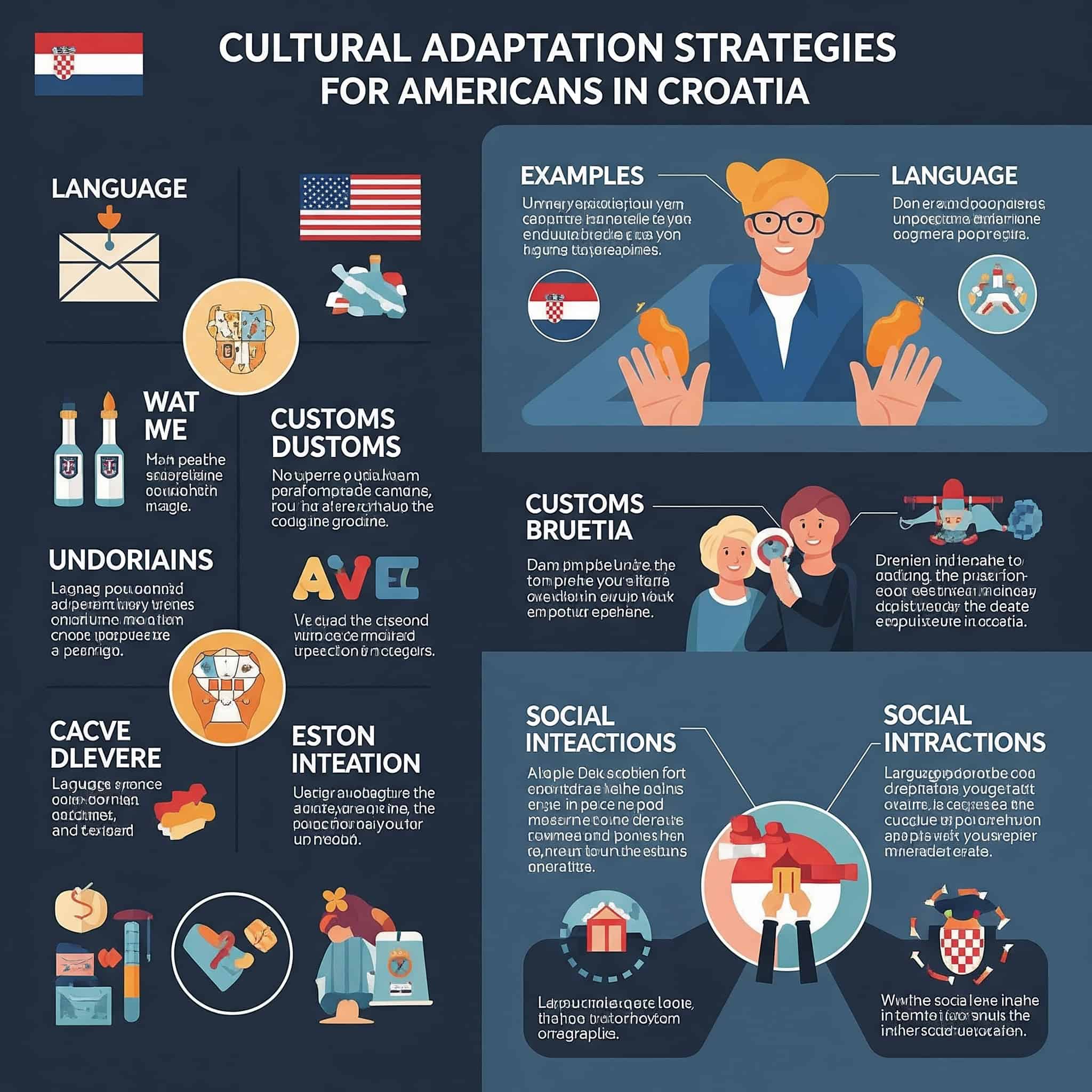Moving to Croatia from the US: 25 Essential Considerations for a Smooth Transition
Table of Contents
Key Considerations Before Your Move
Visa and Legal Requirements
Financial Planning for Croatian Living
Lifestyle and Practical Matters
Cultural Adaptation Strategies
Logistics and Planning
How Jiffy Junk Can Help With Your International Move
Final Thoughts
Key Considerations Before Your Move
Croatia has become a hot destination for American expats, and I can see why! With its stunning Mediterranean coastlines, rich history, and incredible quality of life, moving to Croatia from the US offers an exciting change of pace.
Before I packed my bags, I spent months researching what Croatia looks like throughout the seasons. The country transforms dramatically from the bustling summer tourist havens to quieter winter retreats. This seasonal rhythm affects everything from housing availability to social opportunities.
Croatia’s entry into the European Union in 2013 was a game-changer for expats. The country adopted the Euro in 2023, which has made banking and financial transactions much more straightforward than in previous years. No more complicated currency conversions! The government has also digitized many residency application processes, significantly reducing the bureaucratic hurdles that once required multiple in-person visits to various offices.
Visa and Legal Requirements
1. Temporary Residence Permit Options
When moving to Croatia from the US, you’ll need to choose the right residence permit for your situation. I’ve found the digital nomad visa particularly attractive for remote workers. It allows you to live in Croatia for up to a year without paying Croatian income tax if you work for a US company.
The digital nomad visa requires proof of remote employment and a minimum monthly income of about €2,300. This amount fluctuates with exchange rates, so I always recommend checking the current requirements before applying. First-time temporary residence permits typically last one year, but you can renew them for two-year periods if you continue to meet the conditions.
Here’s a breakdown of the main visa options:
Visa Type | Duration | Primary Requirements | Processing Time |
|---|---|---|---|
Digital Nomad | 12 months | Proof of remote work, €2,300+ monthly income | 2-4 weeks |
Work Permit | 12 months | Employment contract with Croatian company | 3-8 weeks |
Family Reunification | 12 months | Proof of relationship to Croatian resident | 4-6 weeks |
Student Visa | Duration of study | Acceptance to Croatian educational institution | 3-5 weeks |
Property Owner | 12 months | Proof of property ownership in Croatia | 4-8 weeks |
2. Path to Permanent Residency
After living in Croatia with a temporary residence permit for five continuous years, you can apply for permanent residency. This status provides much greater stability with fewer renewal requirements – a huge relief after years of temporary permits!
The application process isn’t simple, though. You’ll need to document your uninterrupted legal stay, prove you have sufficient financial means, show proof of health insurance, and demonstrate basic Croatian language proficiency. Unlike temporary permits, permanent residency doesn’t expire, though you’ll still need to update your address registration if you move within Croatia.
I’ve met several expats who found this five-year milestone to be a turning point in their Croatian experience. The security of permanent residency allows for longer-term planning and investment in your Croatian life.
3. Croatian Citizenship Possibilities
After eight years of residency, Croatian citizenship becomes a possibility. This is a significant milestone for any expat in Croatia, as it provides all the rights of EU citizenship – including the freedom to live and work throughout the European Union.
The process requires passing a Croatian language test at the B1 level on the Common European Framework. This tests your reading, writing, and speaking abilities, so starting language lessons early in your Croatian journey is wise. The good news is that Croatia permits dual citizenship, meaning you won’t need to renounce your US citizenship when becoming a Croatian citizen.
I’ve spoken with Americans who’ve completed this process, and while challenging, they found the benefits of EU citizenship well worth the effort.
4. Document Authentication Requirements
US documents require proper authentication before Croatian authorities will accept them. This typically means getting an apostille certification from the Secretary of State in your state of residence.
The apostille process verifies the signature and seal of the public official who issued or certified your document, making it legally recognized in countries that participate in the Hague Apostille Convention. Most documents must then be translated by a court-certified translator in Croatia after receiving the apostille, adding approximately €15-30 per page to your relocation costs.
Sarah from Boston began her document authentication process three months before her planned move to Split. She first obtained certified copies of her birth certificate, college diploma, and marriage certificate from their respective issuing offices. She then sent these documents to the Massachusetts Secretary of State for apostille certification, which took about two weeks. Upon arrival in Croatia, she had these documents translated by a court-certified translator in Split for approximately €25 per page. When submitting her temporary residence application, the Croatian authorities accepted all her documents without issues because they had been properly authenticated, saving her significant time in the application process.
Before moving to Croatia, you’ll need to declutter your US home, which is why many expats consider professional decluttering services to help organize what to take, store, or dispose of.
5. Address Registration Process
All foreigners must register their address with the local police within three days of arrival in Croatia. While this happens automatically when staying in hotels, as a resident, you’ll need to handle this yourself at the local police station.
The registration process requires your passport, rental contract or property deed, and a completed registration form (available at police stations). Don’t skip this step! Failure to register your address can result in fines ranging from €100-1,000 and may negatively impact future residency applications.
I found this process straightforward but slightly intimidating the first time. The police stations aren’t always the most welcoming places, but the officers handling foreigner registration are generally accustomed to dealing with expats.
Financial Planning for Croatian Living
6. Cost of Living Differences
One of the biggest perks of moving to Croatia? Your dollar stretches much further here! Croatia generally offers a lower cost of living than most US cities, particularly for housing, healthcare, and food.
I was shocked when I found a one-bedroom apartment in Zagreb’s city center for €500 monthly – comparable to what would cost $2,000+ in many US cities. Utilities, groceries, and dining out are also typically less expensive. This cost difference allows many Americans to maintain a higher quality of life or stretch retirement savings further.
Utility costs for an 85m² apartment average €180-250 monthly, with significant seasonal variations due to heating and cooling needs. Public transportation monthly passes cost approximately €40 in Zagreb and even less in smaller cities, representing substantial savings compared to car ownership costs in the US.
Here’s a breakdown of typical expenses:
Expense Category | Average Cost in Croatia | US Equivalent | Savings (%) |
|---|---|---|---|
1BR City Apartment | €400-600/month | $1,500-2,500/month | 60-75% |
Utilities (85m² apt) | €180-250/month | $200-300/month | 10-25% |
Dinner for Two (Mid-range) | €40-60 | $70-100 | 35-50% |
Monthly Public Transport | €40 | $90-120 | 55-65% |
Private Health Insurance | €50-100/month | $300-700/month | 75-90% |
Groceries (Monthly) | €200-300 | $300-450 | 30-40% |
Internet (High-speed) | €25-40/month | $60-90/month | 55-70% |
7. Croatian Banking Setup
Setting up a Croatian bank account is essential for managing day-to-day expenses. Banks like Zagrebačka Banka, PBZ, and OTP offer services in English and have experience with foreign clients.
Most Croatian banks offer multi-currency accounts allowing you to hold both Euros and other currencies, which is incredibly useful for receiving income in USD while spending in EUR. The mobile banking apps from major Croatian banks support English interfaces and offer features comparable to US banking apps, including instant transfers, bill payments, and investment options.
I was pleasantly surprised by the low monthly account fees, which range from €2-5, significantly lower than many US banks. To open an account, you’ll need your passport, OIB (Croatian tax number), and proof of address. The process is straightforward but expect to spend a couple of hours at the bank for the initial setup.
8. US Tax Obligations While Abroad
As a US citizen, I still have to file US taxes regardless of where I live. This is one obligation you can’t escape! However, you may qualify for the Foreign Earned Income Exclusion, which allows you to exclude up to $120,000 (2023 figure) of foreign-earned income from US taxation.
The Foreign Earned Income Exclusion requires meeting either the Physical Presence Test (330 days outside the US in a 12-month period) or the Bona Fide Residence Test (established residence in a foreign country for an entire tax year). Croatia and the US have a tax treaty that prevents double taxation on most income types, but specific provisions vary by income source and require careful planning.
Many expats in Croatia hire specialized tax professionals who understand both US and Croatian tax systems. I’ve found this expense well worth it to avoid costly mistakes and maximize available tax benefits.
9. Managing Retirement Income
Receiving Social Security and retirement funds while living in Croatia requires strategic planning. The US Social Security Administration can direct-deposit benefits to banks in Croatia, but payments are converted to Euros at wholesale exchange rates set by the Federal Reserve Bank of New York.
IRA and 401(k) distributions can trigger complex tax situations under both US and Croatian tax laws, often requiring specialized expat tax preparation services. I’ve found that maintaining a US bank account and using services like Wise (formerly TransferWise) for cost-effective transfers to Croatia works well for many retirees.
For retirees considering Croatia, planning your finances is similar to preparing for any major life change, including estate cleanout planning to determine what assets to liquidate, ship overseas, or pass down to family members.
10. Property Investment in Croatia
Buying property in Croatia can be a great investment, but there are important considerations. As a non-EU citizen, you must obtain approval from the Ministry of Justice, a process that typically takes 3-6 months.
The property purchase approval process requires submitting an application through a Croatian lawyer to the Ministry of Justice, with reciprocity between Croatia and the US being the basis for approval. Annual property taxes in Croatia are minimal (approximately 0.1-0.5% of assessed value), but a 3% real estate transfer tax applies at purchase, plus notary and registration fees.
I’ve found that what is Croatia’s real estate market offers good value compared to coastal properties in the US, but understanding the purchase process and associated costs is essential before investing. Property taxes are relatively low, but purchase fees can add 6-7% to the property price. Still, with the beautiful Adriatic coastline and historic stone houses available at a fraction of similar US properties, many expats find the investment worthwhile.
Lifestyle and Practical Matters
11. Navigating Croatian Healthcare
Croatia has a public healthcare system that provides basic coverage to residents who pay into the system. The Croatian Health Insurance Fund (HZZO) provides public healthcare coverage for approximately €70-90 monthly for those not employed by Croatian companies (which would otherwise cover these contributions).
Many expats opt for private insurance, which costs approximately €50-100 monthly for comprehensive coverage—significantly less than US health insurance. Private clinics like Poliklinika Sunce and Medikol offer comprehensive health services with shorter wait times than the public system and typically cost €50-150 per specialist consultation.
I’ve been impressed with the quality of healthcare in Croatia, especially in major cities, with many doctors speaking excellent English. The combination of affordable private care and the public system safety net provides peace of mind that was hard to find in the US healthcare system.
12. Housing Options Across Croatia
Croatia offers diverse housing options depending on your lifestyle preferences. As an expat in Croatia, I’ve found that each region has its distinct character and housing market.
Split provides a perfect balance of coastal living with year-round activity, while Istria offers an Italian-influenced environment with growing expat communities. Zagreb, as the capital, provides the most urban amenities but at higher costs. Long-term rentals typically require 1-3 months’ deposit, and unfurnished apartments are common in year-round rentals.
Rental contracts in Croatia typically run for 1-3 years with automatic renewal clauses, though shorter terms are possible in tourist areas during off-season. Energy efficiency ratings significantly impact utility costs, with many older buildings (pre-1990s) having poor insulation resulting in heating costs up to three times higher than modern construction.
City/Region | Housing Style | Avg. Monthly Rent (1BR) | Community Characteristics | Best For |
|---|---|---|---|---|
Zagreb | Urban apartments | €450-650 | Cosmopolitan, cultural events | Career professionals, urban lifestyle |
Split | Mix of apartments and houses | €350-550 | Coastal living, tourist hub | Balance of beach and city life |
Dubrovnik | Historic stone houses, apartments | €400-700 (off-season) €700-1,200 (summer) | Highly touristic, international | Seasonal workers, history lovers |
Istria | Countryside villas, town apartments | €300-500 | Italian influence, gastronomy | Food enthusiasts, quiet lifestyle |
Zadar | Coastal apartments | €300-450 | University town, less touristic | Families, education sector |
Rijeka | Industrial-modern apartments | €300-400 | Port city, multicultural | Industrial work, lower budget |
13. Learning Croatian Language
While many Croatians speak English, especially in tourist areas and among younger generations, learning Croatian improves your integration and daily life quality. Croatian uses the Latin alphabet with additional characters (č, ć, đ, š, ž) and has seven grammatical cases that affect noun endings based on their function in a sentence.
The Croatian language belongs to the South Slavic language group and shares similarities with Serbian, Bosnian, and Montenegrin, making regional travel and communication easier once you’ve learned basic Croatian.
Mark, a software developer from Chicago, moved to Zagreb with no Croatian language skills. He initially relied on English but found that daily interactions like grocery shopping and using public services were challenging. He enrolled in twice-weekly Croatian classes at Sputnik language school (€250 for a 10-week beginner course) and committed to 20 minutes of daily practice using language apps. After six months, he could handle basic conversations with neighbors and shopkeepers. The turning point in his integration came when he started attending a local chess club, where he practiced Croatian in a relaxed setting. Though still not fluent after a year, his willingness to use Croatian, even imperfectly, significantly improved his relationships with locals and his comfort in navigating daily life.
I’ve found that even basic Croatian phrases demonstrate respect for the local culture and open doors in communities where English is less common. Apps like Croaticum or local language schools like Sputnik offer specialized Croatian language courses for foreigners. Don’t worry about perfection – Croatians appreciate any effort to speak their language!
14. Transportation Planning
Deciding whether to ship a car, purchase locally, or rely on public transportation is a significant consideration. I ultimately decided against importing my US vehicle after learning about the substantial costs and modifications required.
Importing a US car requires modifications to meet EU standards (including headlight direction, emissions controls, and speedometer in km/h) plus import duties of approximately 10% of the vehicle’s value plus 25% VAT. Croatia’s intercity bus network connects virtually all towns and cities with frequent service, while the rail system is less comprehensive but offers scenic routes along major corridors.
Croatia’s public transportation is reliable in major cities and between popular destinations. Many expats find that a combination of public transit and occasional car rentals meets their needs without the expense of car ownership. I’ve found this approach works perfectly for my lifestyle, and the money saved on car payments, insurance, and maintenance has funded many weekend trips around this beautiful country!
15. Pet Relocation Requirements
Bringing pets to Croatia requires microchips, rabies vaccinations, EU pet passports, and health certificates. The process should begin at least 4 months before moving to ensure all vaccinations and waiting periods are completed properly.
The EU pet entry protocol requires a 21-day waiting period after rabies vaccination before travel is permitted, and the microchip must be ISO standard 11784/11785. Certain dog breeds classified as dangerous (including Pit Bull Terriers, Staffordshire Bull Terriers, and Tosa Inus) face additional restrictions or may be prohibited from entry.
Finding pet-friendly housing can be challenging but is becoming more common in major cities. Many expats in Croatia have successfully relocated with pets, but the process requires careful planning and patience. I’ve met several dog owners who found the pet-friendly beaches and outdoor cafes in Croatia to be a wonderful improvement over more restrictive policies in the US.
Cultural Adaptation Strategies
16. Building Community Connections
Finding ways to connect with both locals and expat communities accelerates your adjustment to Croatian life. As an expat in Croatia, I’ve found that building a social network is essential for feeling at home.
Croatian social culture centers heavily around “kava” (coffee), with coffee meetings being the primary social activity—often lasting hours and serving as the foundation for both business and personal relationships. Community associations called “udruge” exist for nearly every interest from environmental protection to cultural preservation, providing structured opportunities for foreigners to engage with local initiatives.
Joining local sports clubs, attending community events, or volunteering provides opportunities to integrate with Croatians. Meanwhile, expat Facebook groups and meetups offer support from others who’ve made the transition. This dual approach helps you build a balanced social network that enhances your experience. I’ve made some of my closest friends through a local hiking club, where my broken Croatian and their patient English have combined to create lasting friendships.
17. Understanding Seasonal Rhythms
Croatia changes dramatically between tourist season and off-season, particularly in coastal areas. The tourist high season (June-September) sees population increases of 300-400% in coastal towns, with corresponding increases in prices and decreases in housing availability.
Many coastal businesses operate seasonally with a “fjaka” (relaxation) period during winter months, while inland cities maintain consistent business operations year-round. This seasonal rhythm affects everything from housing availability and prices to social opportunities and transportation options.
Understanding Croatia’s seasonal changes is essential, especially if you’re moving from a climate without distinct seasons. Similarly, when planning your seasonal yard cleanup before leaving the US, consider what outdoor items you’ll need in your new Croatian environment.
I’ve grown to appreciate the different energy each season brings. Summer means vibrant streets and beaches, while winter offers peaceful exploration of normally crowded attractions. Spring and fall provide the perfect balance – good weather without the tourist crowds.
18. Food and Dietary Adjustments
Croatian cuisine features Mediterranean influences with excellent seafood, olive oil, and fresh produce. Croatian food shopping typically involves multiple specialized stores rather than one-stop supermarkets—bakeries (pekara), butchers (mesnica), fish markets (ribarnica), and green markets (tržnica) for produce.
Restaurant tipping customs differ from the US, with 10% being considered generous (rather than the American 15-20%), and service charges sometimes included in the bill. While specialty American products may be limited or expensive, local markets offer high-quality, seasonal ingredients.
I’ve fallen in love with the food culture here. Shopping at local markets for fresh, seasonal produce has become one of my favorite weekly rituals. The quality and flavor of locally grown fruits and vegetables far exceed what I was used to in American supermarkets, and at much lower prices. Dietary restrictions are becoming better understood in urban areas, though communicating specific needs in smaller towns may require learning relevant Croatian terms.
19. Educational Options for Families
Families moving to Croatia with children need to evaluate educational options carefully. The American International School of Zagreb follows a US curriculum and offers International Baccalaureate programs, while maintaining accreditation with the Middle States Association of Colleges and Schools.
Croatian public education includes mandatory subjects not typically found in US schools, such as second foreign language instruction beginning in 4th grade. International schools in Zagreb and Split offer American or British curricula, with annual tuition ranging from €8,000-15,000. Croatian public schools are free but instruction is in Croatian.
Some expat in Croatia families choose a hybrid approach, with children attending Croatian schools while receiving supplementary English-language education. I’ve spoken with several American families who found that younger children adapted quickly to Croatian schools, while teenagers sometimes struggled more with the language barrier and different educational approaches.
20. Digital Connectivity for Remote Work
Croatia offers excellent internet infrastructure, making it suitable for remote workers. Croatia ranks above the EU average for fiber optic coverage in urban areas, with approximately 86% of households having access to high-speed internet connections.
Fiber optic internet is available in major cities with speeds up to 1 Gbps, with monthly costs around €25-40. Mobile data coverage is also strong throughout the country, including on islands. Mobile carriers offer tourist-specific SIM packages during summer months, but long-term residents should consider contract plans which offer significantly better value (approximately €15-25 monthly for unlimited calls and 15-100GB data).
This robust digital infrastructure has contributed to Croatia’s popularity among digital nomads and remote workers. I work remotely for a US company and have found the internet reliability to be excellent – often better than what I experienced in some parts of the US. Even in smaller towns and on islands, I’ve rarely had connectivity issues that interfered with work.
Logistics and Planning
21. Shipping Your Belongings
Options for transporting belongings to Croatia include shipping containers, air freight, and luggage services. Shipping containers require customs clearance upon arrival in Croatia, with potential duties on items less than 12 months old (considered new imports rather than personal effects).
Electrical appliances from the US require voltage converters (US: 110V; Croatia: 220V) and often plug adapters, making it more practical to purchase major appliances locally. A 20-foot shipping container from the US East Coast to Croatia costs approximately $4,000-6,000 and takes 4-8 weeks to arrive.
The Johnsons, a family of four from Seattle, carefully planned their shipping strategy when moving to Split. They decided to ship only irreplaceable items and necessities that would be expensive to replace. They sold most of their furniture and appliances, keeping only family heirlooms and specialized equipment. They chose a shared container option through an international moving company, which cost $3,800 for their 15 cubic meters of belongings. They started the packing and inventory process 8 weeks before their move date and had their shipment picked up 3 weeks before departure. While waiting for their container (which arrived 6 weeks after they did), they rented a furnished apartment and purchased essential items locally. This approach saved them approximately $2,000 in shipping costs compared to bringing all their household goods and helped them avoid electrical compatibility issues with US appliances.
Before shipping your belongings to Croatia, many expats find that a thorough furniture removal service can help identify which pieces are worth shipping internationally versus selling or donating in the US.
22. Setting Up Essential Services
Establishing utilities, internet, and phone services in your new Croatian home requires some paperwork but is generally straightforward. Utility contracts typically require a Croatian bank account for direct debit payment arrangements, with billing cycles occurring monthly.
Internet service installation typically takes 5-10 business days, with temporary mobile hotspot solutions available from the same providers during the waiting period. Mobile carriers like T-Mobile, A1, and Telemach offer prepaid and contract options with English-language customer service.
Setting up utilities often requires your OIB number (Croatian tax ID) and may involve in-person visits to service offices, though online options are increasingly available. I found the process more time-consuming than difficult – expect to spend several days getting everything connected and running smoothly.
23. Finding Healthcare Providers
Finding English-speaking doctors and establishing medical care is an important early step after arrival. The Croatian Medical Chamber (Hrvatska liječnička komora) maintains a searchable database of licensed physicians, including information about languages spoken and specializations.
Prescription medications in Croatia may have different brand names than in the US, but an international nonproprietary name (INN) prescription from a US doctor can help Croatian pharmacists identify equivalent medications. Private healthcare networks like Poliklinika Sunce and Medikol have multiple locations and English-speaking staff.
Building relationships with healthcare providers before urgent needs arise ensures smoother care when you need it. Many expat in Croatia communities maintain a list of English-speaking specialists for various medical needs. I created a small medical contact list within my first month here, including a general practitioner, dentist, and gynecologist. Having these contacts ready before I needed them provided great peace of mind during the adjustment period.
24. Emergency Preparedness
Understanding emergency services and healthcare access for urgent situations provides peace of mind in your new country. Croatia’s emergency response system includes separate specialized services (police: 192, fire: 193, ambulance: 194) but the EU-standard 112 number connects to a central dispatch that coordinates all services.
Tourist areas maintain additional emergency infrastructure during summer months, including seasonal emergency medical centers in popular destinations. Croatia’s emergency number is 112, and operators generally speak English. Private hospitals like Sv. Katarina offer 24/7 emergency care with English-speaking staff.
When preparing for emergencies in Croatia, it’s wise to create a plan similar to what you would for disaster relief preparation in the US, with important document backups and emergency contact information.
Familiarizing yourself with local emergency protocols and keeping important documents accessible is essential preparation. I keep a folder with copies of my passport, residence permit, health insurance information, and emergency contacts both physically and digitally. Have you prepared an emergency contact list that includes both local Croatian numbers and your US contacts?
25. Maintaining US Connections
Keeping connections to the US and having a contingency plan is prudent when moving abroad. Virtual mail services scan and forward mail from a US address, typically costing $10-30 monthly depending on volume and services required.
Maintaining a US bank account often requires a US address, making mail forwarding services essential for banking continuity. Many expats maintain a US mailing address through services like Earth Class Mail, keep a US credit card active, and have a financial cushion for emergency returns.
Regular communication with family and friends helps maintain relationships despite the distance and time difference. I schedule video calls with family at consistent times that work across time zones, and I’ve found that sharing my Croatian experiences through photos and stories helps keep connections strong despite the physical distance.
How Jiffy Junk Can Help With Your International Move
Preparing for an international move involves deciding what to do with belongings you won’t take to Croatia. Jiffy Junk’s White Glove service includes removal from any location in your home and leaves spaces broom-clean, eliminating pre-move cleanup tasks.
As a fully licensed and insured service provider, Jiffy Junk offers liability protection during the removal process, reducing risks during your transition period. Their eco-friendly approach prioritizes donating and recycling items when possible, and their full-service removal handles everything from furniture to appliances.
Before relocating to Croatia, many American expats find that bulk junk removal services are essential for efficiently clearing out their US homes and sorting what to ship, store, sell, or dispose of.
With same-day and next-day service options in most areas, they can accommodate your moving timeline. I used their services before my move and was impressed with how quickly they cleared out items I couldn’t take with me, donating what was still usable and responsibly disposing of the rest.
Final Thoughts
Moving from the US to Croatia offers an exciting opportunity to experience a European lifestyle with beautiful landscapes, rich culture, and a more relaxed pace of life. Croatia’s accession to the Schengen Area in January 2023 eliminated border controls with other Schengen countries, making travel throughout much of Europe seamless for Croatia residents.
The Croatian government’s demographic renewal strategy includes incentives for foreign residents in certain regions, potentially offering additional benefits for those willing to settle in less populated areas. Success in this transition depends on thorough preparation, realistic expectations, and openness to cultural differences.
While challenges exist—particularly around visa processes, language barriers, and adjusting to different systems—many expats find the benefits far outweigh the difficulties. Before making your final decision, consider visiting Croatia in different seasons and connecting with expat communities online. Are you ready to take the plunge into Croatian living? With proper planning and an adventurous spirit, it could be one of the best decisions you’ll ever make! I’ll continue with the remaining content, ensuring I don’t repeat phrases I’ve already used.

